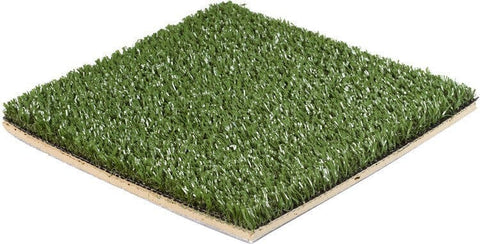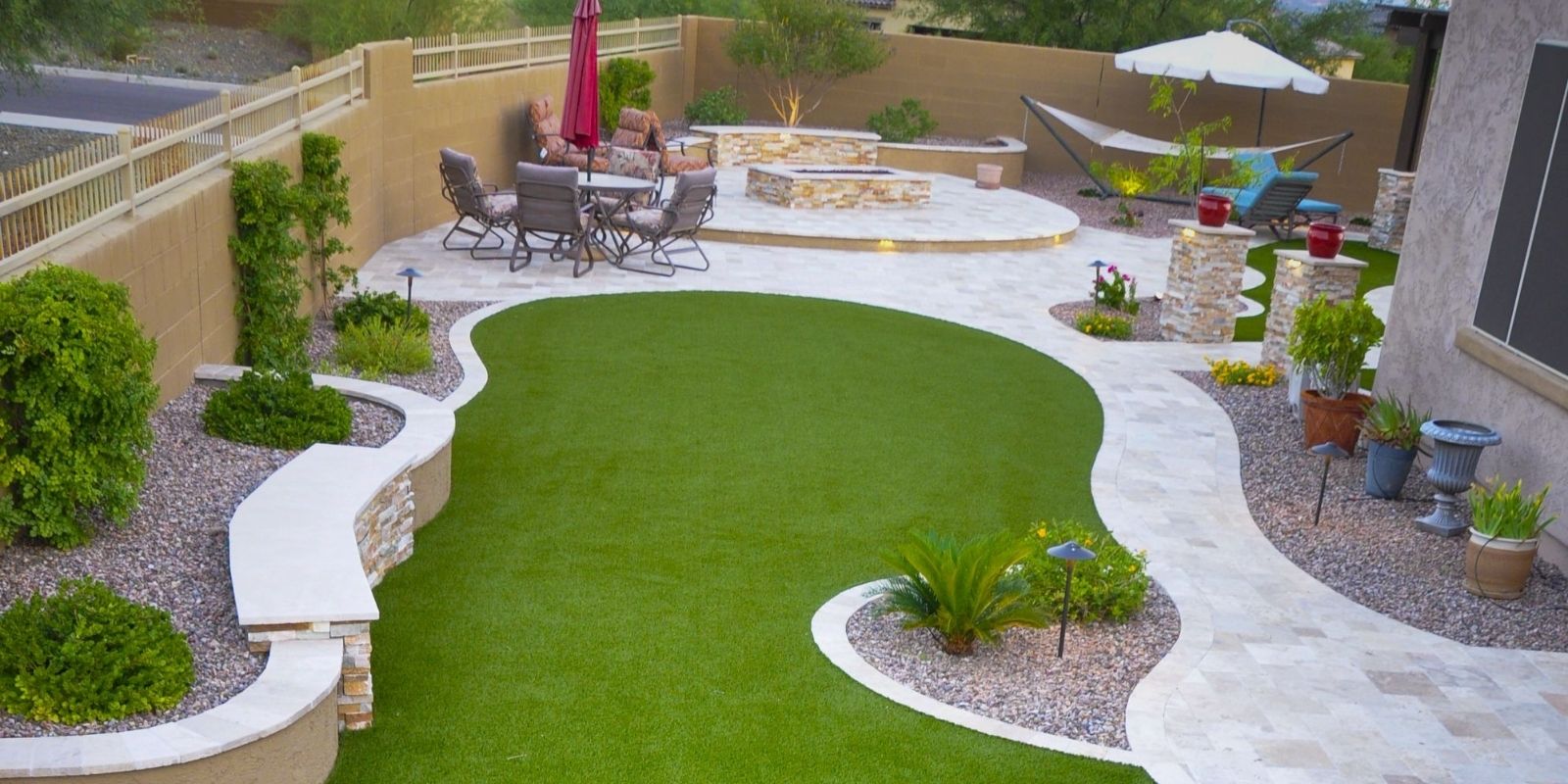Top-Rated Phoenix Turf Companies Focusing on Synthetic Grass Options
Top-Rated Phoenix Turf Companies Focusing on Synthetic Grass Options
Blog Article
Delve Into the Environmental Benefits of Opting for Artificial Grass Solutions
The fostering of man-made grass options provides a compelling chance to deal with pressing environmental difficulties. By dramatically decreasing water use and decreasing the application of harmful chemicals, these alternatives not only advertise sustainable landscaping but also shield neighborhood ecosystems. The lower carbon footprint linked with lowered maintenance tasks adds to an extra sustainable approach to land monitoring. Nevertheless, the implications of these advantages extend past mere preservation initiatives, increasing questions concerning their long-term influence on habitat conservation and general ecological equilibrium. Discovering these dimensions exposes a complex interaction worth thinking about.
Water Conservation Advantages
One of the most substantial benefits of artificial turf is its capability to save water. In contrast, artificial lawn does not require watering, significantly lowering the total need for water sources.
By removing the demand for regular watering, synthetic grass adds to lasting landscape techniques and helps alleviate the environmental influence of too much water consumption. The conservation of water extends to the decrease of overflow, which can lead to dirt disintegration and waterway contamination.
Additionally, the setup of synthetic grass allows property owners and towns to assign water resources much more effectively, concentrating on necessary usages such as drinking water and farming. The shift in the direction of synthetic lawn not just promotes responsible water usage however also straightens with wider ecological goals targeted at protecting natural sources.
As areas increasingly prioritize sustainability, the water preservation advantages of synthetic grass present an engaging situation for its adoption in business and property landscaping projects.
Reduced Chemical Use
The shift to synthetic grass significantly decreases the reliance on chemical treatments generally made use of in natural turf maintenance. Conventional turf administration usually includes the application of herbicides, plant foods, and chemicals to promote growth and control insects. These chemicals can pose threats to human wellness, neighborhood wild animals, and the environment, adding to dirt and water contamination.
In comparison, synthetic grass eliminates the demand for these damaging compounds. Once installed, it needs marginal upkeep, largely including routine cleaning and irregular infill replenishment. This decrease in chemical use not just profits the instant setting yet additionally adds to more comprehensive ecological stability. By decreasing the release of synthetic compounds into the community, synthetic grass advertises much healthier soil and water systems.
Additionally, the absence of chemical runoff linked with synthetic grass setups aids secure regional rivers from pollution, supporting marine life and keeping biodiversity. Arizona turf. As areas increasingly prioritize lasting techniques, choosing synthetic grass offers a sensible solution that lines up with ecological preservation objectives. Via this change, residential property owners can take pleasure in rich environment-friendly areas without compromising environmental health, leading the way for a much more sustainable future
Lower Carbon Footprint

Furthermore, the setup of synthetic grass can lead to significant water preservation. Natural yards require considerable amounts of water for irrigation, which not just adds to the carbon footprint connected with water extraction and treatment but also stress regional water resources. On the other hand, synthetic grass requires minimal upkeep, requiring no watering, thus substantially reducing water use and its linked power expenses.
In addition, the long life of artificial grass adds to its reduced carbon impact. With a life-span of as much as 15 years or more, the requirement for regular replacements is reduced, leading to much less waste and reduced power usage in production and taking care of conventional lawn alternatives. In general, synthetic grass provides check my source a sustainable choice for ecologically conscious landscaping.
Habitat Preservation
Habitat preservation is an important factor to consider in the discussion over landscaping selections, especially when comparing man-made turf to all-natural grass. All-natural turf yards commonly need comprehensive maintenance, consisting of the use of chemicals, herbicides, and fertilizers, which can adversely affect neighborhood ecological communities. These chemicals can seep into the dirt and waterways, harming indigenous flora and animals and interrupting local environments.
In contrast, artificial lawn provides a chance to reduce the eco-friendly footprint of landscape design. By selecting artificial turf, property owners can lessen the disruption of all-natural environments related to typical yard treatment practices. Synthetic grass gets rid of the need for unsafe chemicals, thus protecting close-by wild animals and maintaining the honesty of bordering communities. In addition, the installation of synthetic grass can result in the conversion of former yard areas into even more biodiverse landscapes, such as pollinator gardens or indigenous plant locations, which can support regional wild animals.
Inevitably, the shift to synthetic grass not just preserves water and lowers upkeep efforts however also promotes a more unified connection between human tasks and the natural surroundings, advertising habitat preservation at the same time.
Long-Term Sustainability
Long-lasting sustainability is an important variable in examining the advantages of synthetic turf over typical lawn yards. Among one of the most significant benefits of synthetic grass is its durability; it can last as much as 15-20 years with very little upkeep, whereas all-natural yard calls for regular reseeding and substitute. This durability decreases the requirement for continuous resources, such as water, plant foods, and pesticides, which are vital try this out for keeping a healthy and balanced grass lawn.
In addition, synthetic grass adds to a reduction in carbon discharges connected with grass treatment tools. Conventional grass typically require gas-powered lawn mowers, trimmers, and blowers, every one of which add to air contamination. Phoenix turf companies. In comparison, synthetic grass gets rid of the demand for such equipment, advertising a cleaner setting
Moreover, the production of synthetic grass significantly makes use of recycled materials, enhancing its sustainability account. As manufacturers adopt green techniques, the environmental impact of man-made turf proceeds to reduce.

Verdict
The adoption of synthetic grass remedies presents significant environmental advantages, including considerable water conservation, decreased reliance on dangerous chemicals, and a lower carbon footprint. Moreover, man-made turf aids in preserving natural environments by decreasing land disruption and advertising long-lasting sustainability through the use of long lasting products. Jointly, these aspects underscore the potential of synthetic grass to add positively to ecological health and offer a sensible alternative to typical landscaping techniques in a significantly resource-conscious world.
In contrast, synthetic lawn does not need watering, dramatically minimizing the general demand for water resources. By reducing the launch of artificial substances right into the ecosystem, synthetic grass advertises healthier soil and water systems.
Moreover, the installment of artificial lawn can result in significant water conservation. In comparison, fabricated grass requires very little upkeep, calling for no watering, thus significantly lowering water usage and its linked power costs.

Report this page